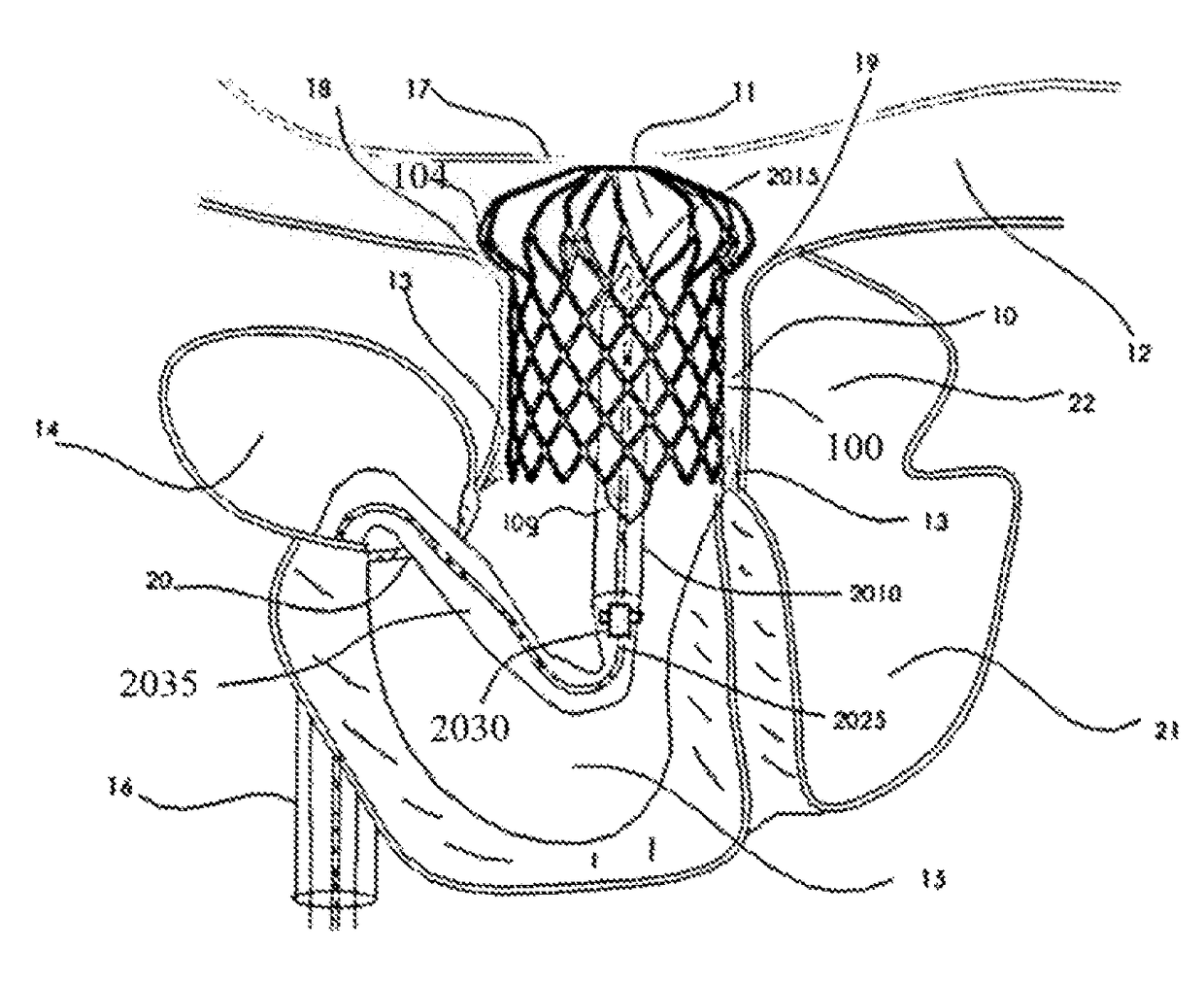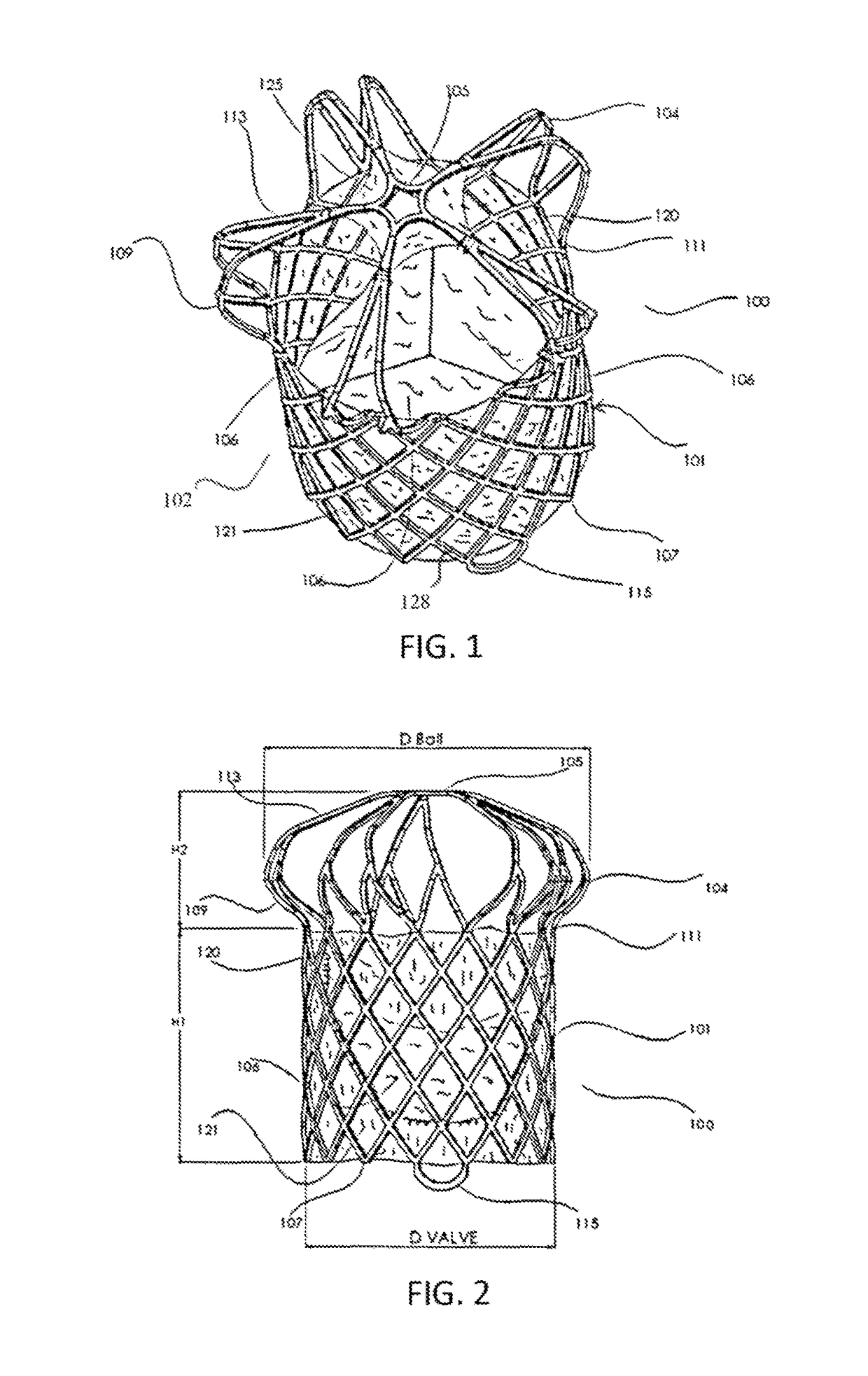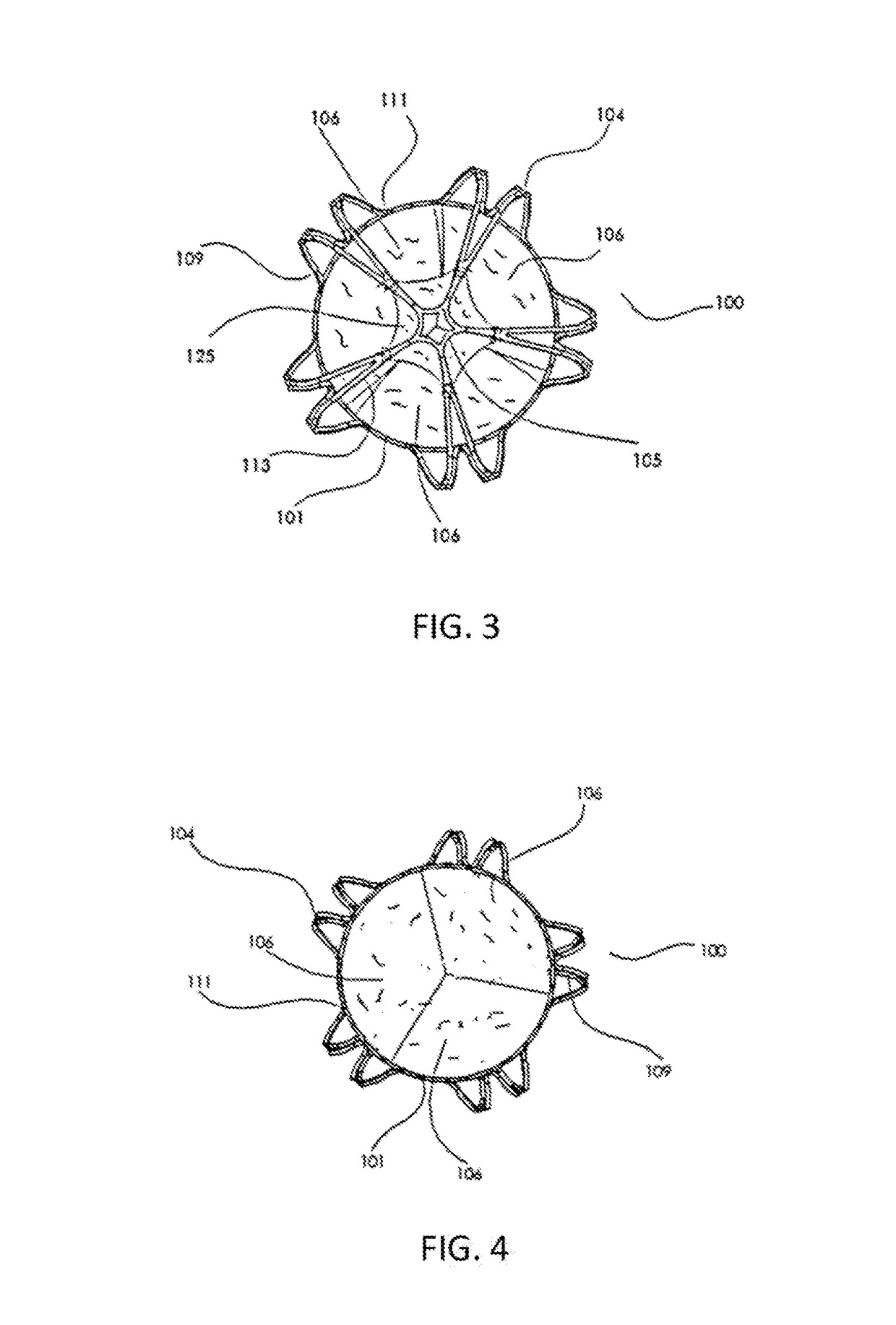Transcatheter pulmonary ball valve assembly
a technology of pulmonary valve and pulmonary valve, which is applied in the field of transcatheter placement of pulmonary valve, can solve the problems of reducing cardiac function, stenosis and regurgitation, alone or in combination, and the life span of rvot conduits is relatively limited, and achieves the effect of restoring the function of pulmonary valv
- Summary
- Abstract
- Description
- Claims
- Application Information
AI Technical Summary
Benefits of technology
Problems solved by technology
Method used
Image
Examples
Embodiment Construction
[0030]The following detailed description is of the best presently contemplated modes of carrying out the invention. This description is not to be taken in a limiting sense, but is made merely for the purpose of illustrating general principles of embodiments of the invention. The scope of the invention is best defined by the appended claims.
[0031]The present invention provides a pulmonary valve assembly 100 that is shown in fully assembled form in FIGS. 1-4. The assembly 100 has a frame 101 (see FIGS. 5-8) that has an anchoring section 109 and a leaflet support section 102 that is adapted to carry an integrated leaflet assembly that comprises a plurality of leaflets 106. The assembly 100 can be effectively secured at the native pulmonary trunk area. The overall construction of the assembly 100 is simple, and effective in promoting proper mitral valve function.
[0032]As shown in FIGS. 5-8, the frame 101 has a ball-shaped anchoring section 109 that transitions to a leaflet support secti...
PUM
 Login to View More
Login to View More Abstract
Description
Claims
Application Information
 Login to View More
Login to View More - R&D
- Intellectual Property
- Life Sciences
- Materials
- Tech Scout
- Unparalleled Data Quality
- Higher Quality Content
- 60% Fewer Hallucinations
Browse by: Latest US Patents, China's latest patents, Technical Efficacy Thesaurus, Application Domain, Technology Topic, Popular Technical Reports.
© 2025 PatSnap. All rights reserved.Legal|Privacy policy|Modern Slavery Act Transparency Statement|Sitemap|About US| Contact US: help@patsnap.com



